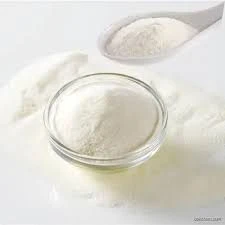- Afrikaans
- Albanian
- Amharic
- Arabic
- Armenian
- Azerbaijani
- Basque
- Belarusian
- Bengali
- Bosnian
- Bulgarian
- Catalan
- Cebuano
- Corsican
- Croatian
- Czech
- Danish
- Dutch
- English
- Esperanto
- Estonian
- Finnish
- French
- Frisian
- Galician
- Georgian
- German
- Greek
- Gujarati
- Haitian Creole
- hausa
- hawaiian
- Hebrew
- Hindi
- Miao
- Hungarian
- Icelandic
- igbo
- Indonesian
- irish
- Italian
- Japanese
- Javanese
- Kannada
- kazakh
- Khmer
- Rwandese
- Korean
- Kurdish
- Kyrgyz
- Lao
- Latin
- Latvian
- Lithuanian
- Luxembourgish
- Macedonian
- Malgashi
- Malay
- Malayalam
- Maltese
- Maori
- Marathi
- Mongolian
- Myanmar
- Nepali
- Norwegian
- Norwegian
- Occitan
- Pashto
- Persian
- Polish
- Portuguese
- Punjabi
- Romanian
- Russian
- Samoan
- Scottish Gaelic
- Serbian
- Sesotho
- Shona
- Sindhi
- Sinhala
- Slovak
- Slovenian
- Somali
- Spanish
- Sundanese
- Swahili
- Swedish
- Tagalog
- Tajik
- Tamil
- Tatar
- Telugu
- Thai
- Turkish
- Turkmen
- Ukrainian
- Urdu
- Uighur
- Uzbek
- Vietnamese
- Welsh
- Bantu
- Yiddish
- Yoruba
- Zulu
10 月 . 22, 2024 12:37 Back to list
Understanding Ivomec Injection Use in Feline Medicine and Its Safety Considerations
Ivermectin Injection for Cats An Overview
Ivermectin is a medication that has garnered attention in veterinary medicine for its efficacy in treating various parasitic infections in animals, including cats. Originally developed as an antiparasitic agent for livestock, Ivermectin is now commonly employed in the treatment of a range of parasitic infestations and certain infectious diseases in small animals like cats. This article aims to provide an overview of Ivermectin injection for cats, covering its uses, dosage, safety, and precautions.
Uses of Ivermectin in Cats
Ivermectin works by targeting the nervous system of parasites, causing paralysis and eventual death. It is particularly effective against a variety of internal and external parasites, including certain species of worms, ear mites, and other ectoparasites. Some of the specific conditions treated with Ivermectin in cats include
1. Ear Mites One of the most common external parasites in cats, ear mites can cause significant irritation and discomfort. Ivermectin can help eliminate these pests and alleviate the associated symptoms.
2. Flea Infestations Ivermectin can also be a part of a comprehensive flea control strategy, especially in cases where topical treatments are ineffective.
3. Heartworm Prevention While not typically used as a primary heartworm preventive in cats, Ivermectin can be effective in treating heartworm infections if administered correctly.
4. Other Parasitic Infections It may also be used to treat other parasitic issues, although it is vital to consult a veterinarian for tailored recommendations.
Dosage and Administration
Ivermectin should only be administered under the supervision of a qualified veterinarian. The dosage will depend on the specific condition being treated and the cat’s weight. For most applications, the standard dosage is typically around 0.1 to 0.2 mg per kg of body weight, but this may vary.
ivomec injection for cats

As an injectable form, Ivermectin is preferred in certain situations, particularly when rapid action is required or when oral administration is not possible. The injection is usually given subcutaneously, meaning under the skin, which allows for quick absorption into the bloodstream.
Safety and Precautions
While Ivermectin is generally considered safe when used appropriately, there are certain precautions to keep in mind. Not all cats can safely receive Ivermectin; certain breeds, particularly those with a genetic mutation (such as the Collie breed family), may experience adverse reactions. Additionally, Ivermectin should not be used in kittens under six weeks of age unless prescribed by a veterinarian.
Before administering Ivermectin, it’s crucial to conduct a thorough examination to rule out any underlying health conditions that may contraindicate its use. Cats with compromised liver function, for example, may require closer monitoring due to the drug’s hepatic metabolism.
Potential side effects of Ivermectin include
- Increased salivation - Vomiting - Diarrhea - Lethargy - Coordination issues
If any of these symptoms appear after administration, it’s essential to contact a veterinarian immediately.
Conclusion
Ivermectin injection can be a valuable tool in the treatment and management of various parasitic infections in cats, providing an effective solution for both internal and external parasites. However, it is essential to use this medication responsibly and under the guidance of a veterinarian to ensure the safety and well-being of the cat. Regular check-ups, proper dosing, and awareness of potential side effects can help maintain your feline friend's health and comfort. Always consult with a veterinary professional to determine the appropriate treatment plan for your cat's specific needs.
-
The Power of Radix Isatidis Extract for Your Health and Wellness
NewsOct.29,2024
-
Neomycin Sulfate Soluble Powder: A Versatile Solution for Pet Health
NewsOct.29,2024
-
Lincomycin Hydrochloride Soluble Powder – The Essential Solution
NewsOct.29,2024
-
Garamycin Gentamicin Sulfate for Effective Infection Control
NewsOct.29,2024
-
Doxycycline Hyclate Soluble Powder: Your Antibiotic Needs
NewsOct.29,2024
-
Tilmicosin Premix: The Ultimate Solution for Poultry Health
NewsOct.29,2024













